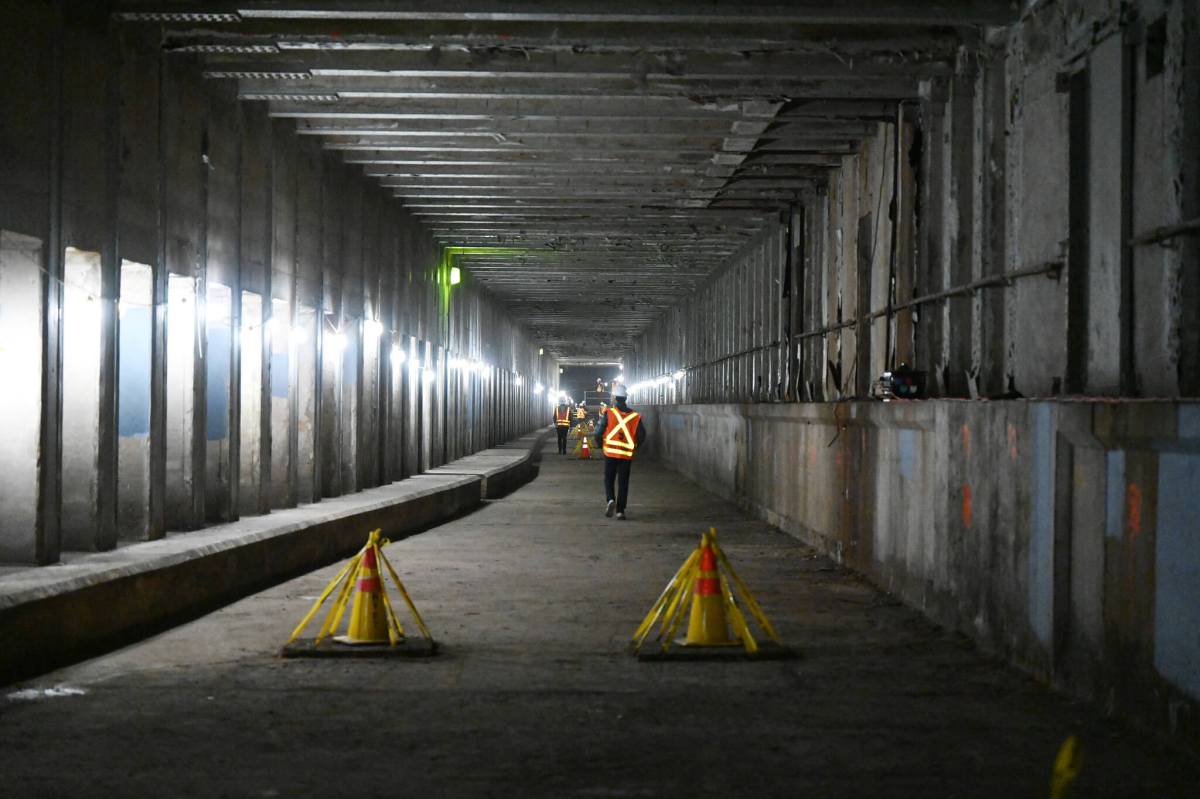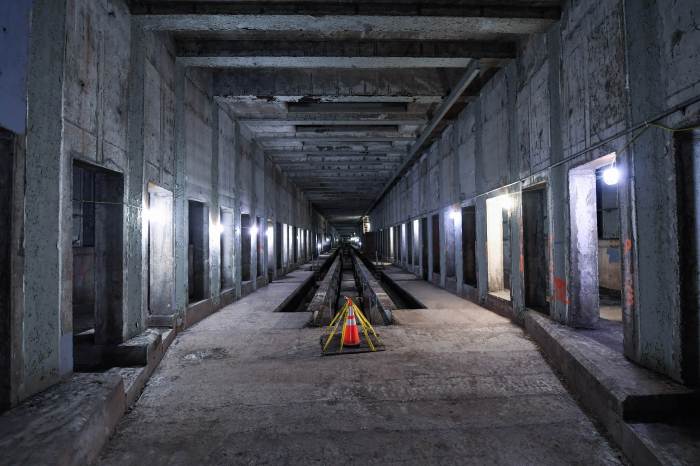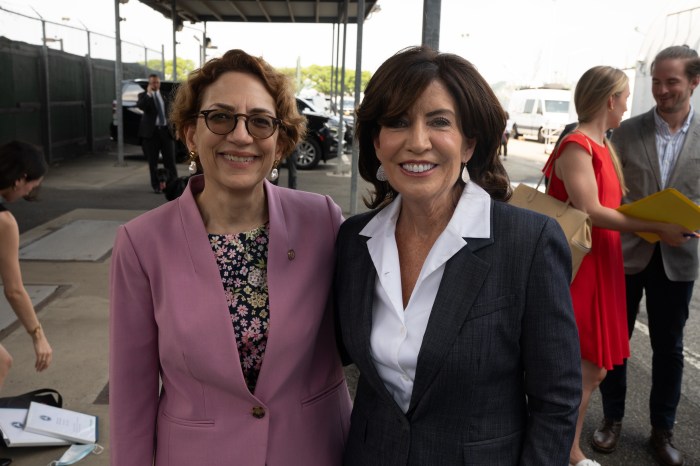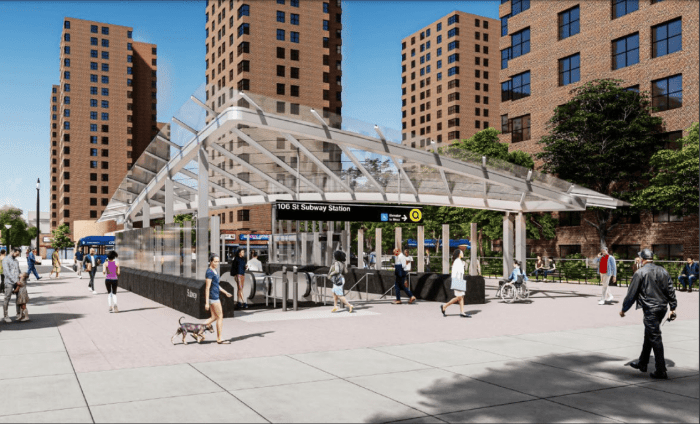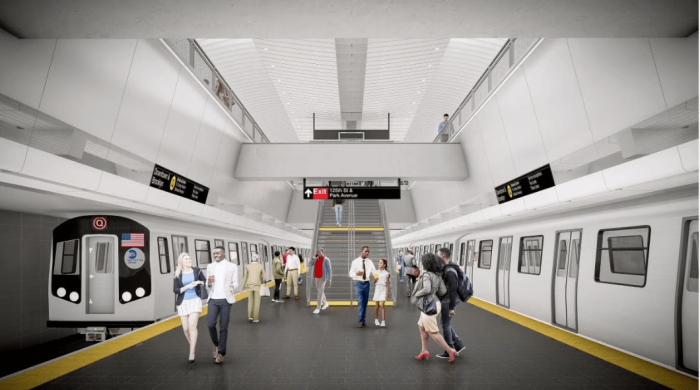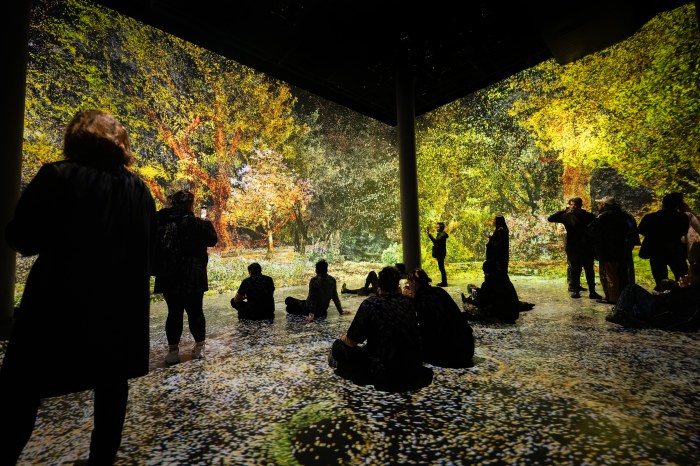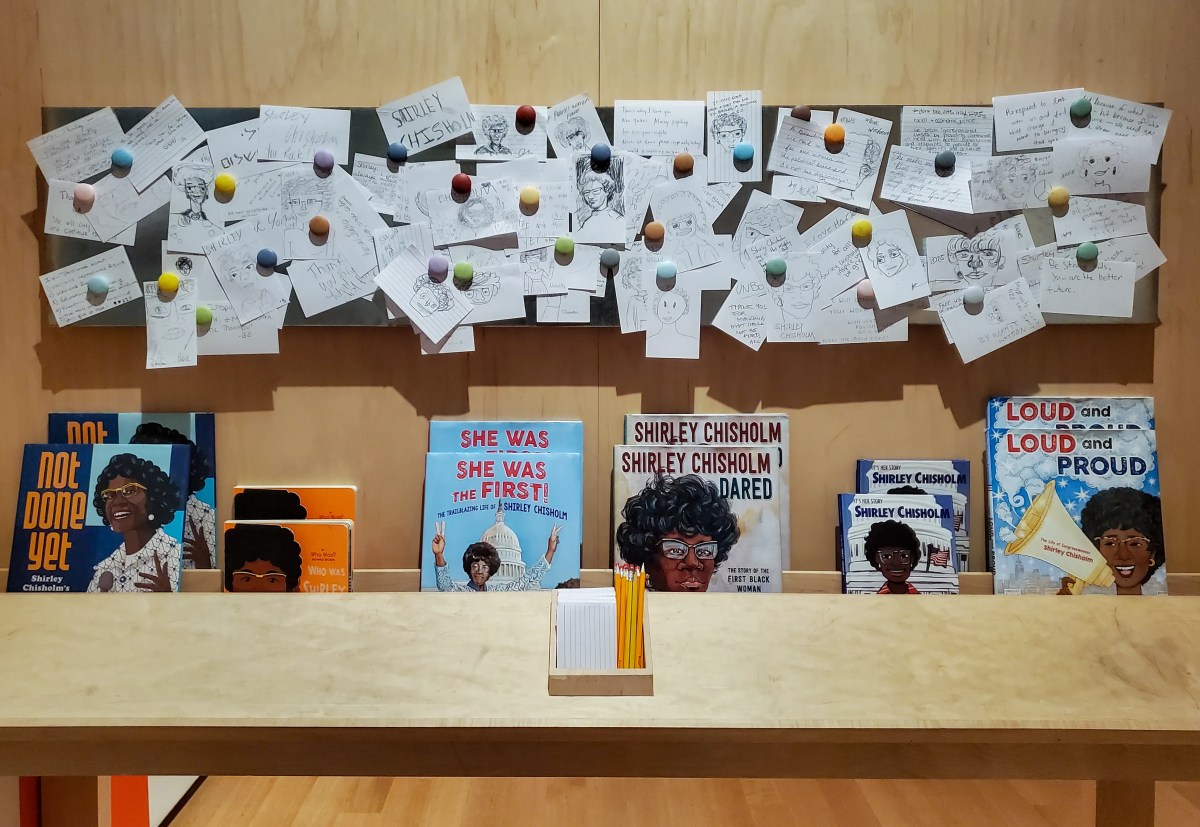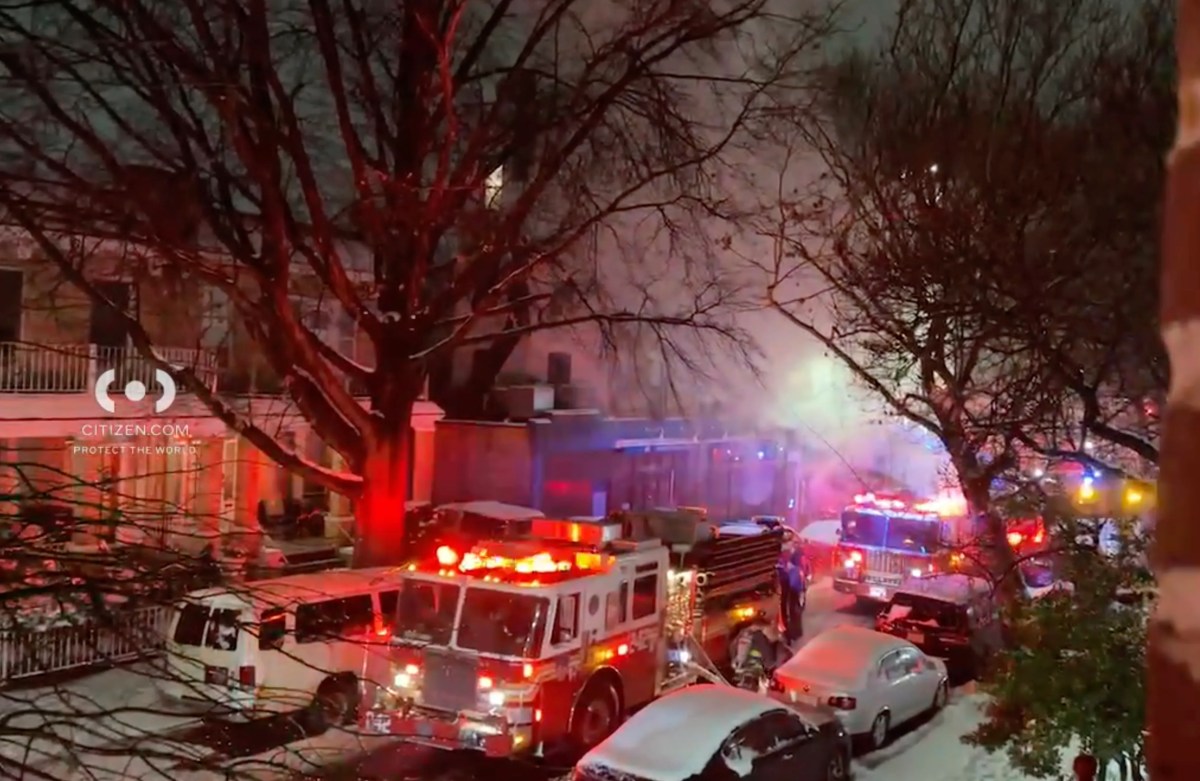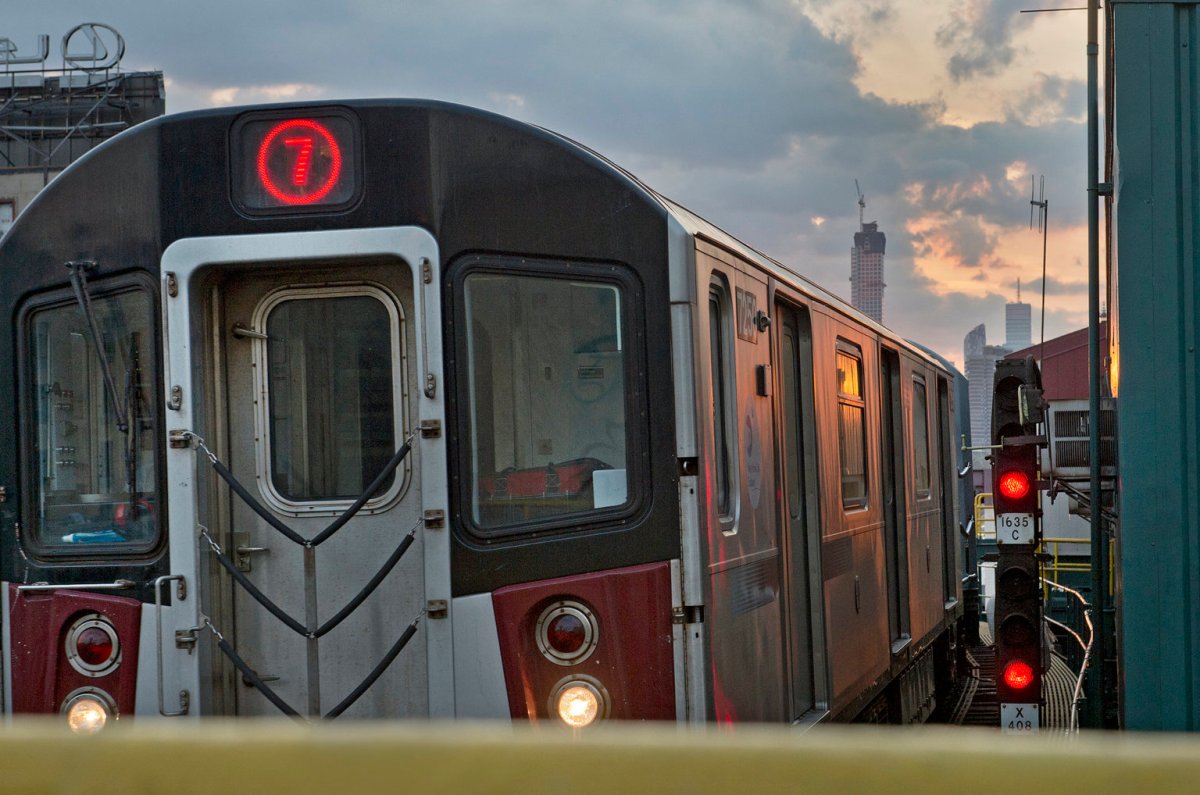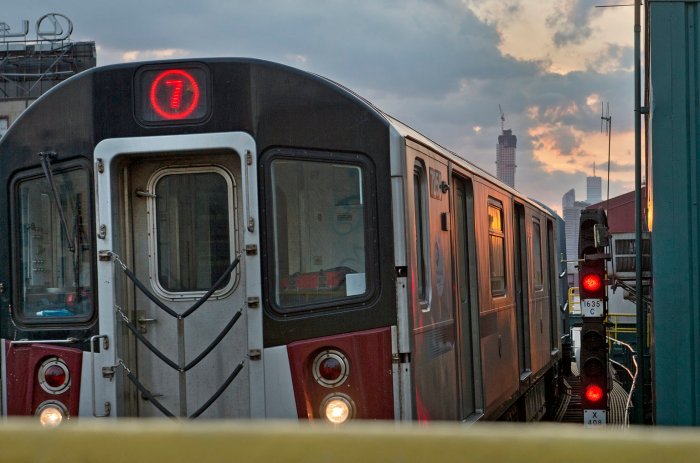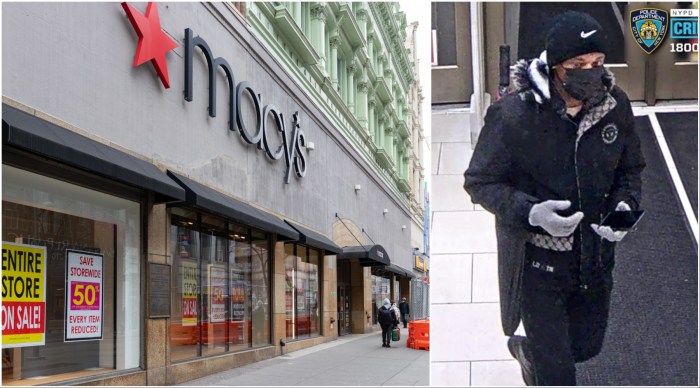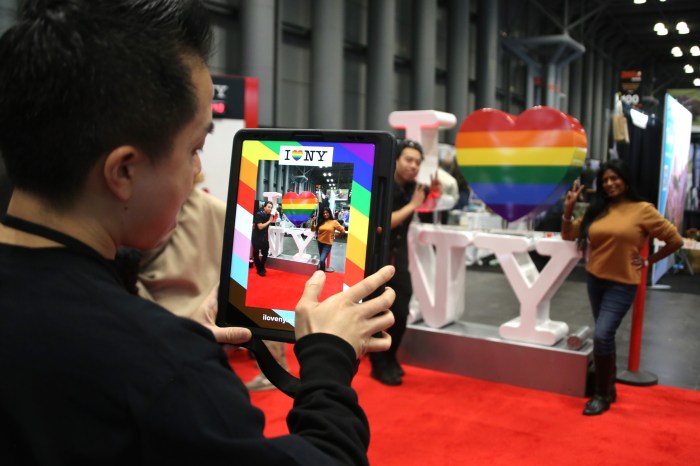The MTA on Wednesday approved spending $82 million to take over parcels of land in East Harlem for the next phase of Second Avenue Subway construction, paying nearly twice the value of the land according to an appraiser hired by the agency.
The $82 million acquisition — the single most expensive real estate deal for the Second Avenue Subway project — is considerably higher than what the agency’s own independent appraiser said the land is worth. The contract, published in the MTA Board’s “Book” ahead of its monthly meeting, notes that an appraiser hired by the MTA pegged the land value at $45.4 million, which is what the transit authority initially bid for the parcels.
The landlord, Extell Development, rejected that bid and came back with its own appraisal of $114 million.
“After extensive negotiations,” the two parties settled roughly in the middle, at the $82 million valuation that the MTA approved spending on Wednesday.
Purchasing the land at East 125th Street and Lexington Avenue is required in order to build a brand-new station entrance for what will eventually be the Q train’s northern terminus, with transfers available to the 4/5/6 line, as well as “ancillary” facilities like ventilation and power. The land is also set to be used as a “staging ground” to get massive tunnel boring machines underground for the digging operation.
The deal, at the site of a former Pathmark grocery store, would allow the existing landlord to lease part of the MTA property for commercial development.

The MTA’s construction chief, Jamie Torres-Springer, told amNewYork Metro on Wednesday that appraisal is a “complex business” and that the authority’s lawyers ultimately determined that the compromise was a fair price to pay.
“There were two independent appraisals, then there was a negotiation,” said Torres-Springer at a press conference following the board meeting. “It is important when you’re entering into that negotiation to find the best value. We subsequently had review by our legal folks who confirmed that they thought that this was a reasonable price to pay.”
Despite the considerable outlays, the acquisition was also preferable to an even costlier and less certain process of condemning the land, said MTA Chair Janno Lieber.
“The moment you say I’m condemning that site, you spend years through the litigation process,” Lieber said in response to a question from amNewYork Metro. “And during that period, whatever ends up being the condemnation award has a statutory 7-8% interest rate attached to it going back to the day you noticed the condemnation.”

The agency did not shed light on how it reached its own appraisal or why exactly its legal team opted to up the ante. But at the MTA’s Finance Committee on Monday, the agency’s Director of Transit Oriented Development, Robert Paley, said the acquisition was a requirement for the MTA to receive desperately-needed federal funding for the Second Avenue megaproject, lest it be delayed even further.
“The subject property is one of the key real estate acquisitions needed to support MTA’s application for a full funding grant agreement from the Federal Transit Administration to advance the Second Avenue Subway Phase 2,” said Paley, who also noted the Federal Transit Administration had “concurred” with the agreed-upon deal.
Extell did not respond to an inquiry for comment.
The purchases are necessary for Phase 2 of the Second Avenue Subway project, which will extend the Q line from its current 96th Street terminus up to 125th Street. Last week, the MTA filed petitions in Manhattan Supreme Court to acquire land on Second Avenue between 119th and 120th streets through eminent domain. Those parcels are also necessary for staging to allow tunnel boring machines to get underground, The City reported.
Phase 2 of the long-festering Second Avenue project will extend the first phase, opened in 2017, by 1.5 miles, adding three stations at 106th Street, 116th Street, and the terminal at 125th Street. The MTA now estimates that Phase 2 will cost $7.7 billion. The MTA recently received a $497 million infrastructure grant from the Biden administration for the project but officials say the agency still needs over $3 billion more from the feds to complete it; the land acquisitions are required by law before the feds award more money, the agency notes.
Manhattan’s land is some of the most expensive on earth, and developers often price it not based on what’s already there, but on what could be built there, said Eric Goldwyn, a professor at New York University’s Marron Institute of Urban Management who has extensively studied transit construction costs.

“What property owners will do is they’ll say, we have development rights that we haven’t used,” Goldwyn said. “‘We need to be compensated for what we could build at the site, not just what’s already here.'”
Conceived in the 1920s, the entire line is set to one day run along Manhattan’s east side between Harlem and Hanover Square in the Financial District. In the 1970s, the MTA dug sections of subway tunnel from 99th to 105th streets and 110th to 120th streets, as well as a short section in Chinatown, but the work was scuttled mid-decade by the city’s financial crisis, which nearly left Gotham bankrupt.
The real estate deal comes as the MTA faces down a fiscal crisis, with Albany deliberating how to plug a $600 million-and-growing deficit caused by lower-than-hoped ridership on transit, the result of the proliferation of working from home. In addition to new streams of funding and a fare hike planned for this year, the agency is also pursuing cost-cutting “efficiencies” like replacing side view mirrors on buses, often broken in collisions, with digital screens.
While the agency has touted reforms in contracting for its big construction projects, further reforms don’t appear to be on the table as part of the $400 million they’re seeking in efficiencies. On Wednesday, the Board approved a $73 million contract with Michael Baker International for consulting services on its construction megaprojects, hoping the outlay will lead to reduced project costs and pay for itself over time.
The $82 million acquisition is being approved before all the pieces are in place for the Second Avenue Subway, a fact noted by MTA Board Member David Jones on Monday.

“If something falls apart, we’re still on the hook for this contract,” said Jones. “So that’s the risk.”
It’s no secret that the MTA is itching to get more federal funds disbursed for the project as quickly as possible, Goldwyn noted, which may give a developer like Extell an edge in negotiations. Adding a premium to the appraisal value to get the deal done quickly, in a sense, would be paid off by the rapid receipt of billions in infrastructure funding from Washington.
“The MTA, I don’t think it’s a secret, they really want a full funding grant for Phase 2,” said Goldwyn. “$40 million to get $2 billion doesn’t seem like the craziest thing in the world.”
Given the historic snail’s pace on the Second Avenue project, Torres-Springer said as much about the deal on Monday, opining that spending the money now would get the ball rolling and prevent the out-of-control cost overruns that made the project’s first phase, which extended the Q train to 96th Street on the Upper East Side, the most expensive subway project in world history on a per-mile basis.
“When people talk about why was the Second Avenue Subway Phase 1 so expensive, it’s because the acquisitions were not done far enough in advance,” Torres-Springer said. “So if we want to have a successful project — we all know Phase 2 is a long-needed amenity for a transit-starved area — we have to get this acquisition done.”
Correction: a previous version of this article incorrectly characterized the real estate deal as through eminent domain. It was a mutually-agreed purchase. Further, Extell presented a $114 million appraisal, not offer. We regret the error.
Read more: AG Letitia James Sues Credit Acceptance Corp Over Loans



